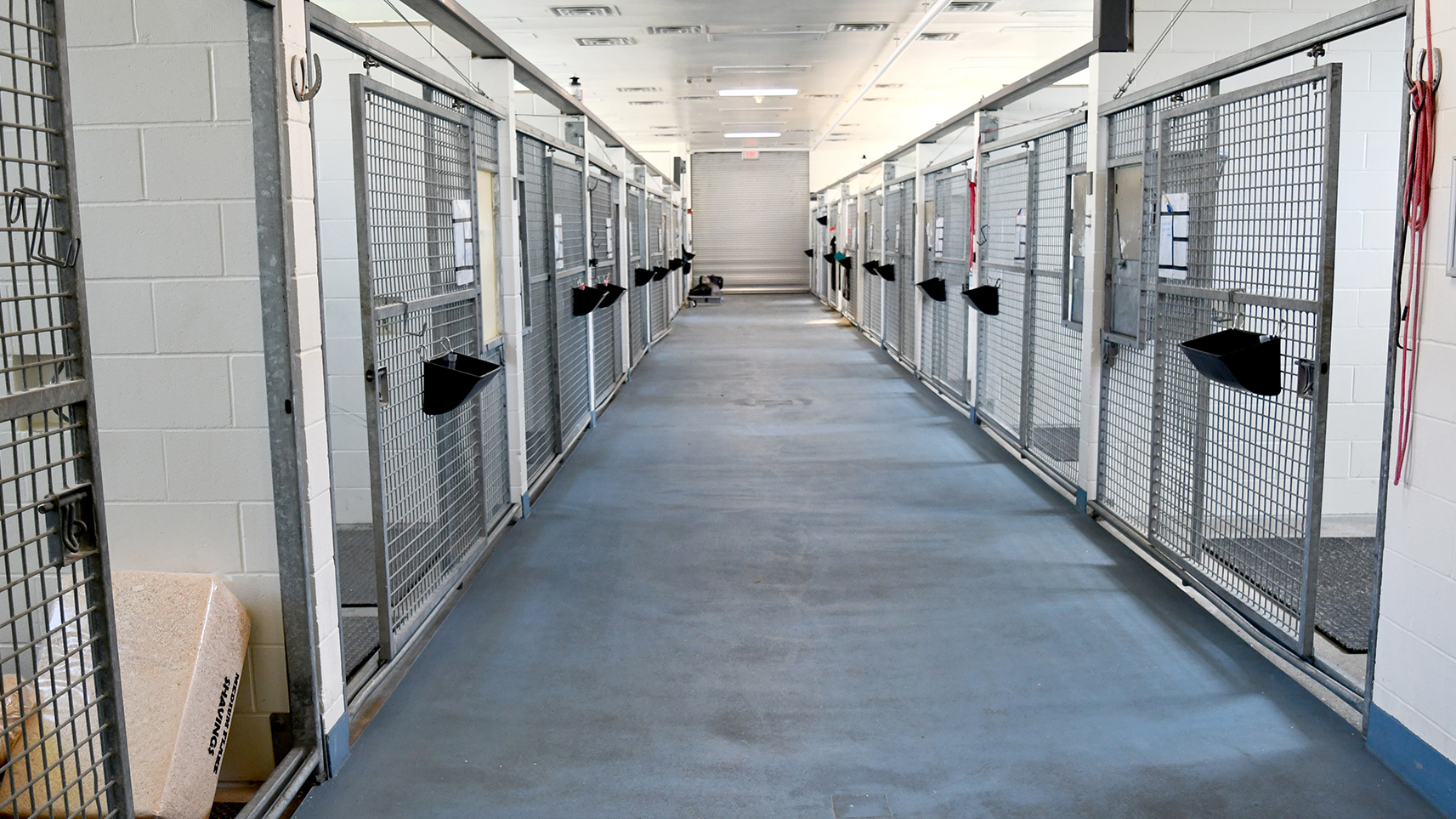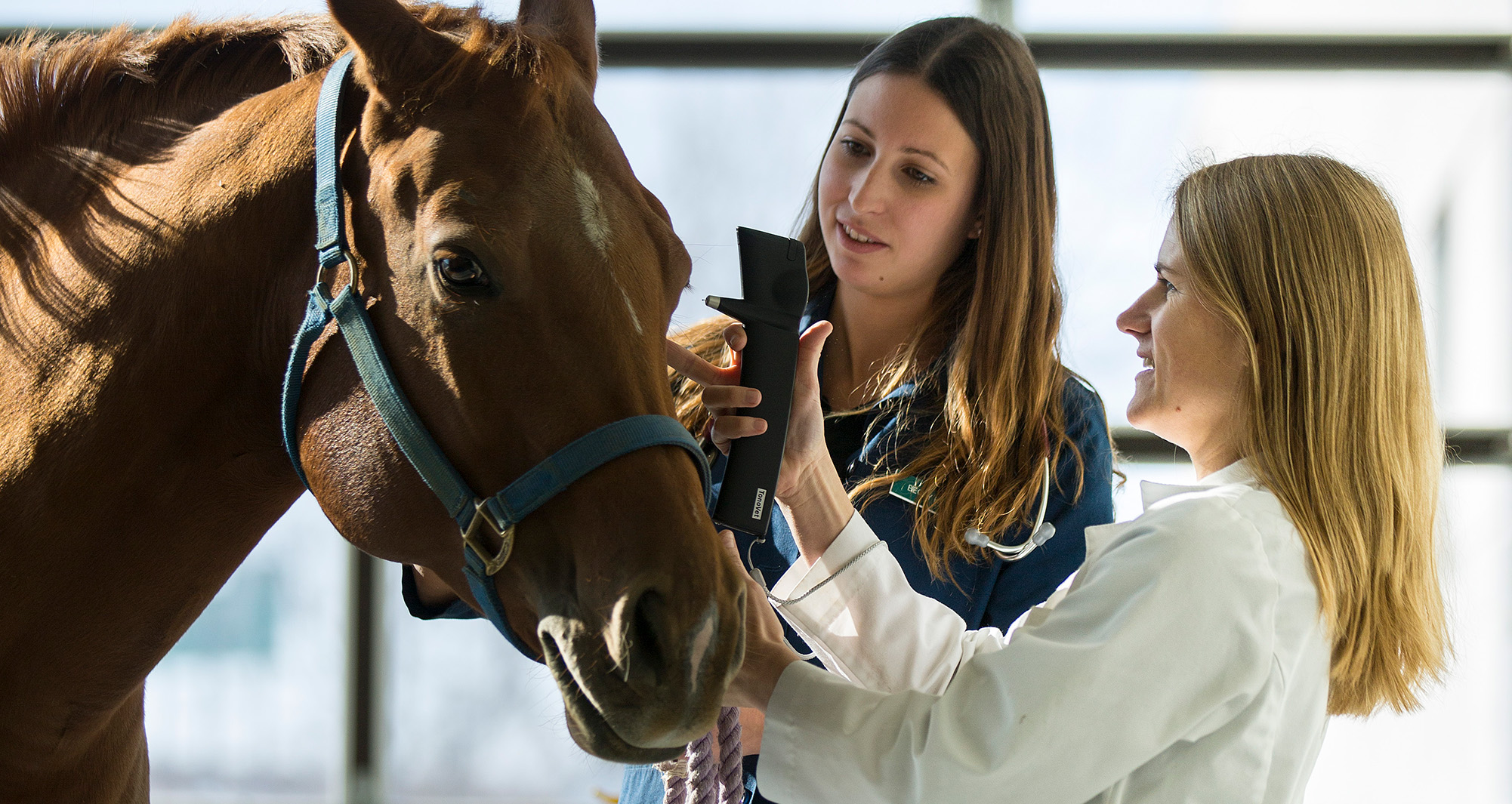
Elevating Expertise in Equine Care
The College of Veterinary Medicine at Iowa State University: First in Animal Care
SINCE IOWA STATE’ S COLLEGE OF VETERINARY MEDICINE WAS ESTABLISHED as the first public veterinary school in the nation, it has been a leader in veterinary education and research, and in providing cutting-edge animal health care services to the people of Iowa and beyond. Today, the college upholds a reputation for providing leading-edge clinical services, with the Lloyd Veterinary Medical Center averaging more than 25,000 total cases a year from states throughout the country, including the Midwest, New Mexico, Washington, and California.
The Lloyd Veterinary Medical Center comprises the Hixson-Lied Small Animal Hospital, with a focus on companion animals, and the Large Animal Hospital, which offers healthcare services for horses, food animals, and camelids. In 2008, the college completed an addition to the Large Animal Hospital that, at the time, provided state-of-the-art facilities and supported the needs of the college and of the agricultural industry.
Since then, tremendous growth in the clientele and expertise of the Large Animal Hospital has led to exciting opportunities to expand existing services and create new ones. Specifically, a rapidly growing equine industry in Iowa has led to the need for an equine facilities expansion that will elevate the college’s capabilities to provide services to clients, educate the next generation of veterinarians, and conduct cutting-edge clinical research.
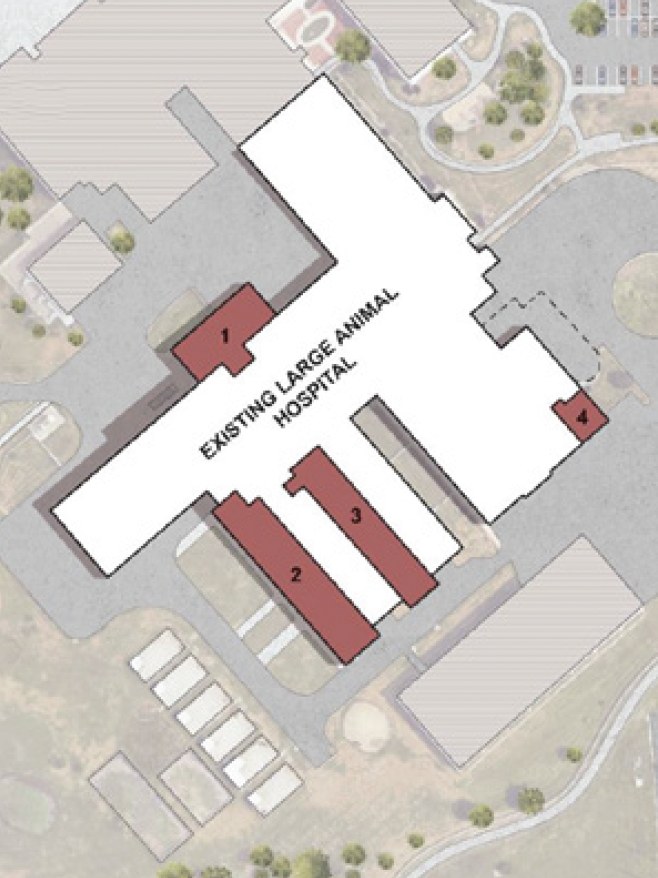 Large Animal Hospital Expansion
Large Animal Hospital Expansion
The Large Animal Hospital expansion involves the construction of several key areas that will dramatically extend the hospital’s services and capabilities to support equine clients. These include:
- Increasing available intensive care areas to accommodate critically ill patients, including mares and foals
- Adding space for equine reproductive services
- Adding area to grow equine rehabilitation services
- Adding laboratory space for advanced reproductive technologies such as embryo transfer and in vitro fertilization
Additional Intensive Care Areas
The project will increase the number of equine intensive-care stalls available to manage critically sick patients. Specially designed stalls will allow for more effective management of pregnant mares with high-risk pregnancies and mare and foal pairs where either (or both) require intensive care. This has become a high priority as the college anticipates an increase in the number of cases in the coming years; for example, in 2023, the ICU housed 30 foaling mares, a number anticipated to grow by approximately 5 to 10 percent each year. In addition to accommodating more births during higher- volume seasons, more stalls will allow for safer distancing among animals being treated for a variety of conditions in the ICU.
Equine Reproductive Services
The college continues to grow equine reproductive services offered to clients. This includes observation of low-risk mares during the foaling season, semen collection and management for stallions, and mare breeding management services. The addition of stalls and a new stallion collection area specifically designed to facilitate these services will allow for space to grow and enhance productivity and safety.
Advanced Reproductive Technologies Laboratory
Increasing reproductive services opens the opportunity to offer the most advanced reproduction techniques, including in vitro fertilization and embryo transfer to both equine and food animal clientele. Due to tremendous growth in this field, expanding the hospital’s capacity in this area will offer substantial opportunities to engage students, interns, and residents. The new laboratory would also provide increased outreach such as training programs for private practitioners, and it will offer a service for practitioners to send oocytes to the hospital for development into embryos.
Rehabilitation Medicine
Recent scientific studies and research have discovered the benefits of rehabilitative exercise in equine athletes, leading to increasing demand by equine owners for specialty rehabilitation services. Offering these services will require additional stall space to allow for the longer-term care required for rehabilitation of patients, and increased space for advanced care equipment such as an underwater treadmill. In adding designed-for-purpose spaces to support rehabilitation services, the Lloyd Veterinary Medicine Clinic would become the sole provider of these services in the Midwest — and a leader in this important aspect of equine care.
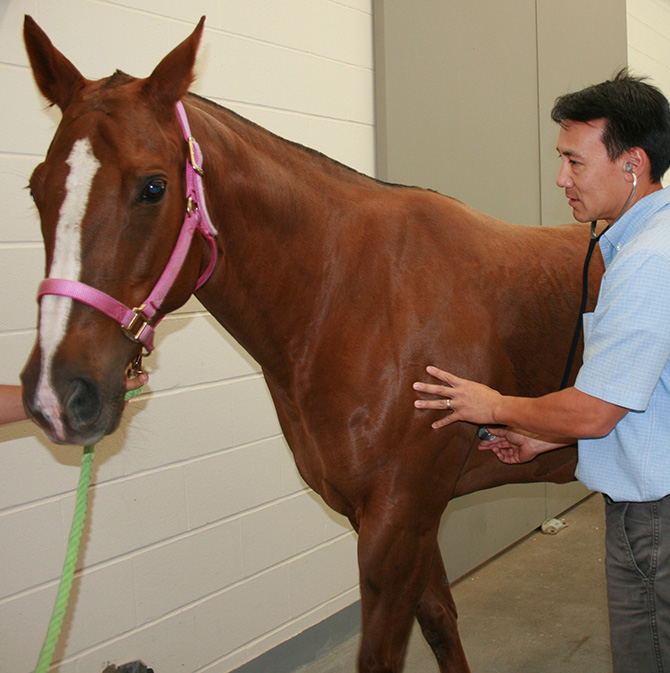
Impact on Other Services
Expanding the hospital’s offerings in reproductive and rehabilitative care will lead to the overall expansion of current equine caseloads. For example, horses brought to the medical center for advanced sports medicine and rehabilitation may require surgical interventions, further growing the surgical caseload. Offering additional reproductive services will increase the need for potential internal medicine care and surgical needs of mares and foals, and increase the emergency caseload associated with reproductive abnormalities and difficult births. Expanding the caseload in these key areas will increase valuable opportunities for students, interns, and residents to gain practical experience in these in-demand areas of veterinary medicine.

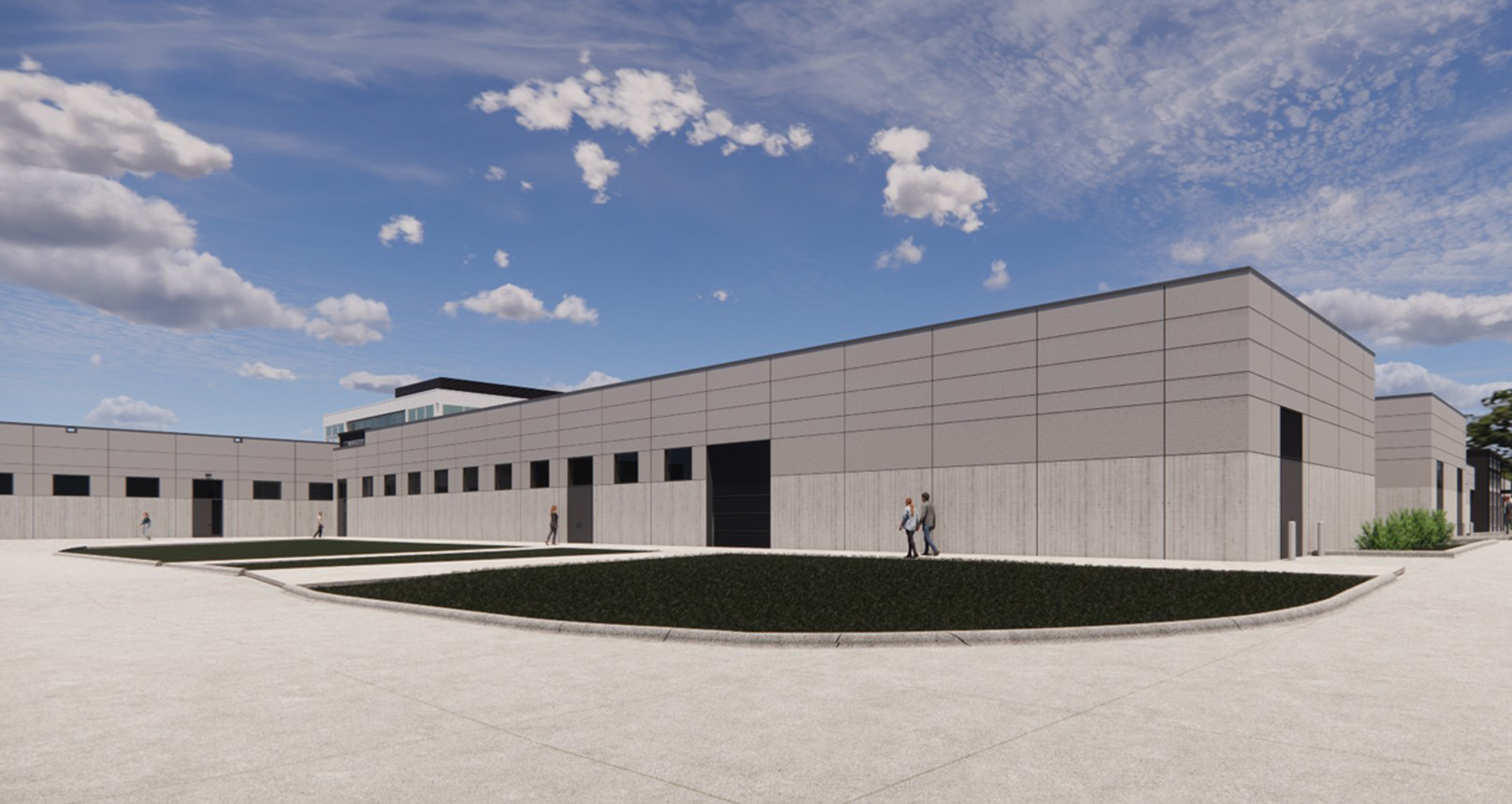
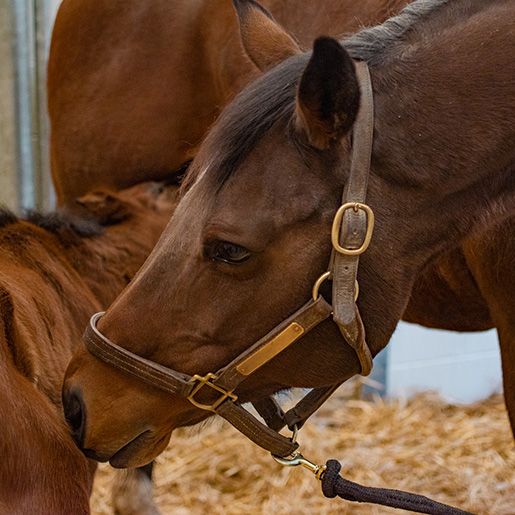
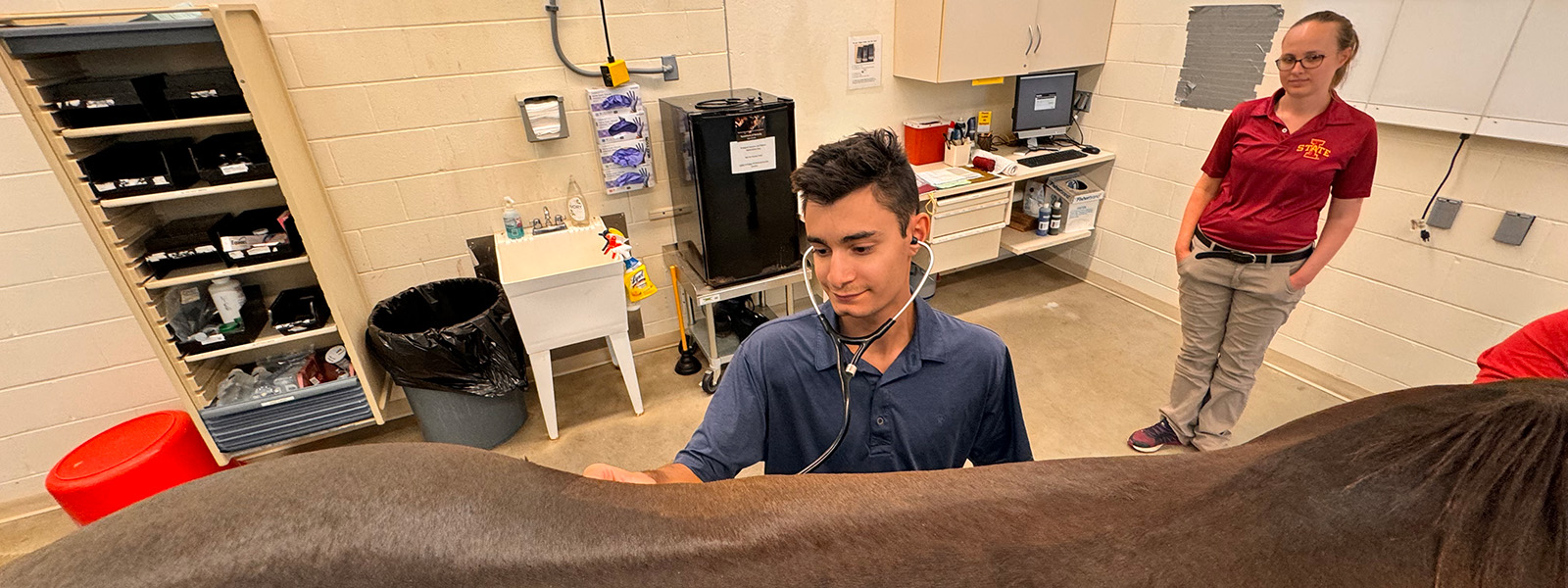 Opportunities to Support the Equine Facilities Expansion Project
Opportunities to Support the Equine Facilities Expansion Project